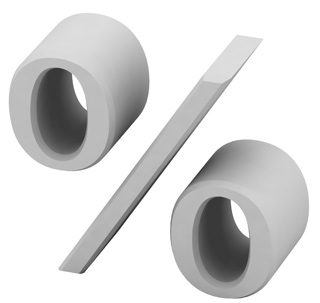
One of the many variables that will influence your home loan in Winnipeg is the type of rate you get for it. The choices are a fixed or variable mortgage rate. Fully understanding what each of them can offer you is very important. Some important points to consider in making your decision include:
- Do you anticipate your income to increase, decrease, or remain the same over time?
- Will you be able to afford a higher payment?
- How long do you plan to reside in the home?
- What trends are taking place with the economy and with overall interest rates?
Fixed Mortgage Rates
With fixed mortgage rates, you always know what your monthly mortgage payment is going to be. This rate will be the same for the duration of your amortization period. That means month after month that payment amount will never change. There are some exceptions though such as if you refinance your home. Should that occur, then the new fixed rate will be in place for the duration of the loan.
If current mortgage rates drop by 1% or more, it does make sense for you to consider refinancing. This is especially true if you still have many years left to pay on that mortgage loan. By dropping the mortgage payment due, you can lower your payments. You can also opt to continue paying what you are now, and that can shave years off of the overall interest you will pay.
For many potential buyers, this is the best way to go. They get used to a given payment amount and they are able to work with it month after month. The downside to it though is if they are looking to buy a home at a time when mortgage rates are extremely high. Even with good credit, they could be getting a rough deal due to the other factors that play a role in that final decision regarding the mortgage rate.
Variable Mortgage Rates
With variable mortgage rates, there is the opportunity to get a lower initial rate than with a fixed rate. However, the risk you take is that at various intervals, the loan will be re-evaluated and that can mean your mortgage rate changes. This evaluation can occur as soon as 1 month after the loan or as long as 10 years after the loan is initiated. The timeframe will be part of the overall loan documents.
It may decrease and that means you can save money on your payments – just like the above mentioned scenario. The other side of that coin though is that the rate could go up. Would you be able to afford to pay more each month if that occurred? Would that additional cost result in you losing your home? Such questions are certainly very important to examine before you get yourself into such a loan predicament.
To help with reducing the risk involved with a variable mortgage rate so that it doesn’t destroy your ability to pay, there should be other information in your contract. This includes a cap that indicates the maximum interest rate that could occur with any adjustment period. There should also be a ceiling which is the highest that interest can climb over the life of the loan. With that information, you can determine if you would realistically still be able to afford the monthly payments if they reached those limits.